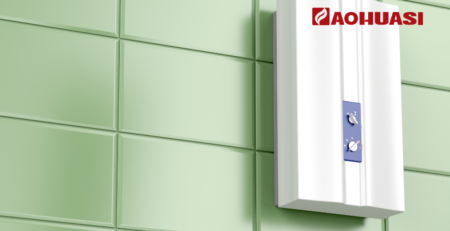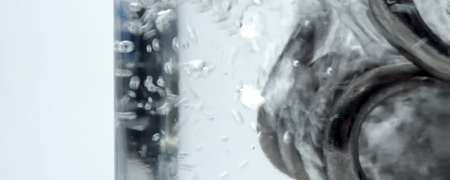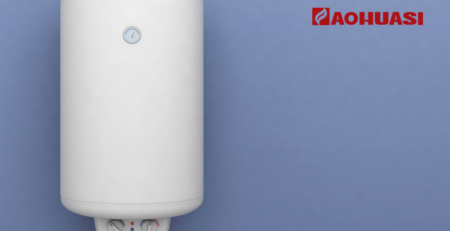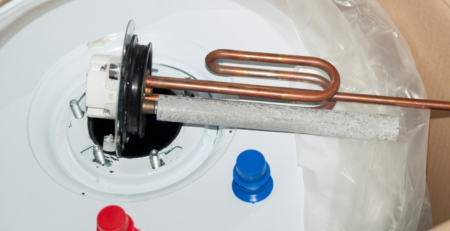Energy Warriors: Comparing Electric Water Heaters for High Energy Efficiency
Comparing Electric Water Heaters for High Energy Efficiency In the battle for energy efficiency, electric water heaters emerge as true warriors, providing households with hot water while minimizing energy consumption. As homeowners increasingly prioritize sustainability and cost savings, the efficiency of electric water heaters becomes a key factor in decision-making. In this guide, we compare different types of electric water heaters, shedding light on the warriors leading the charge in high energy efficiency.
1. Tankless Electric Water Heaters: On-Demand Efficiency
Tankless electric water heaters are champions in the quest for energy efficiency. These units heat water on demand, eliminating the need for a storage tank and the associated standby heat loss. By heating water only when needed, tankless heaters maximize energy utilization, making them ideal for households with varying hot water usage patterns. The absence of a storage tank minimizes heat loss, contributing to overall efficiency.
2. Heat Pump Electric Water Heaters: Harnessing Ambient Heat
Heat pump electric water heaters harness ambient heat from the surrounding air to warm the water, making them formidable contenders in the energy efficiency arena. These warriors use electricity to move heat rather than generate it, resulting in significantly lower energy consumption. While heat pump units may have a higher upfront cost, their long-term energy savings make them a strategic investment for eco-conscious homeowners.
3. High-Efficiency Storage Tank Electric Water Heaters
Traditional storage tank electric water heaters have also joined the ranks of energy-efficient warriors through advancements in technology. High-efficiency storage tank models feature improved insulation and heating elements, reducing standby heat loss and optimizing the heating process. These units are designed to deliver hot water with minimal energy waste, making them a reliable choice for households with consistent hot water demand.
4. Hybrid Electric Water Heaters: Dual-Power Prowess
Hybrid electric water heaters combine the strengths of electric resistance heating with heat pump technology, showcasing dual-power prowess. These warriors automatically switch between electric and heat pump heating sources based on demand and ambient conditions. The result is an energy-efficient solution that provides fast recovery times and optimal performance, making hybrids a versatile choice for varying usage scenarios.
5. Condensing Electric Water Heaters: Maximizing Heat Recovery
Condensing electric water heaters maximize heat recovery by capturing and utilizing heat from flue gases. This innovative approach significantly improves energy efficiency by extracting additional heat that would otherwise be lost. While condensing units may have higher upfront costs, their superior efficiency and reduced environmental impact make them formidable warriors in the pursuit of sustainability.
6. Energy Star Certified Models: The Seal of Efficiency
The Energy Star certification serves as a badge of honor for electric water heaters committed to high energy efficiency standards. Models with the Energy Star label meet or exceed stringent criteria set by environmental protection agencies. Choosing an Energy Star certified electric water heater ensures that you are investing in a warrior recognized for its exceptional efficiency and contribution to energy savings.
7. Smart Features for Energy Optimization
Smart features in electric water heaters enhance energy optimization. Warriors with Wi-Fi connectivity, programmable timers, and energy-saving modes empower homeowners to customize settings and monitor usage patterns. By leveraging smart technology, these units adapt to household needs, ensuring hot water is delivered efficiently while minimizing unnecessary energy consumption.
8. Consideration of Local Energy Costs and Availability
In the battle for energy efficiency, considering local energy costs and availability is a strategic move. Electric water heaters operate based on electricity rates, which can vary regionally. Homeowners should evaluate the cost-effectiveness of each type of electric water heater in their specific location to make an informed decision that aligns with both efficiency and budgetary considerations.
Conclusion
As homeowners strive to be energy-conscious and cost-effective, the choice of an electric water heater becomes a critical decision. Understanding the different types of electric water heaters and their energy efficiency characteristics allows homeowners to make informed choices that align with their priorities. Whether it’s the on-demand efficiency of tankless units, the ambient heat utilization of heat pumps, or the dual-power prowess of hybrids, each type of electric water heater contributes to the collective effort of being energy warriors in homes.
Get Access Now
Ready to explore the energy-efficient warriors in the realm of electric water heaters? Visit us for comprehensive insights, comparisons, and expert recommendations to guide you in choosing the perfect warrior for your household’s hot water needs while maximizing energy efficiency.





Leave a Reply